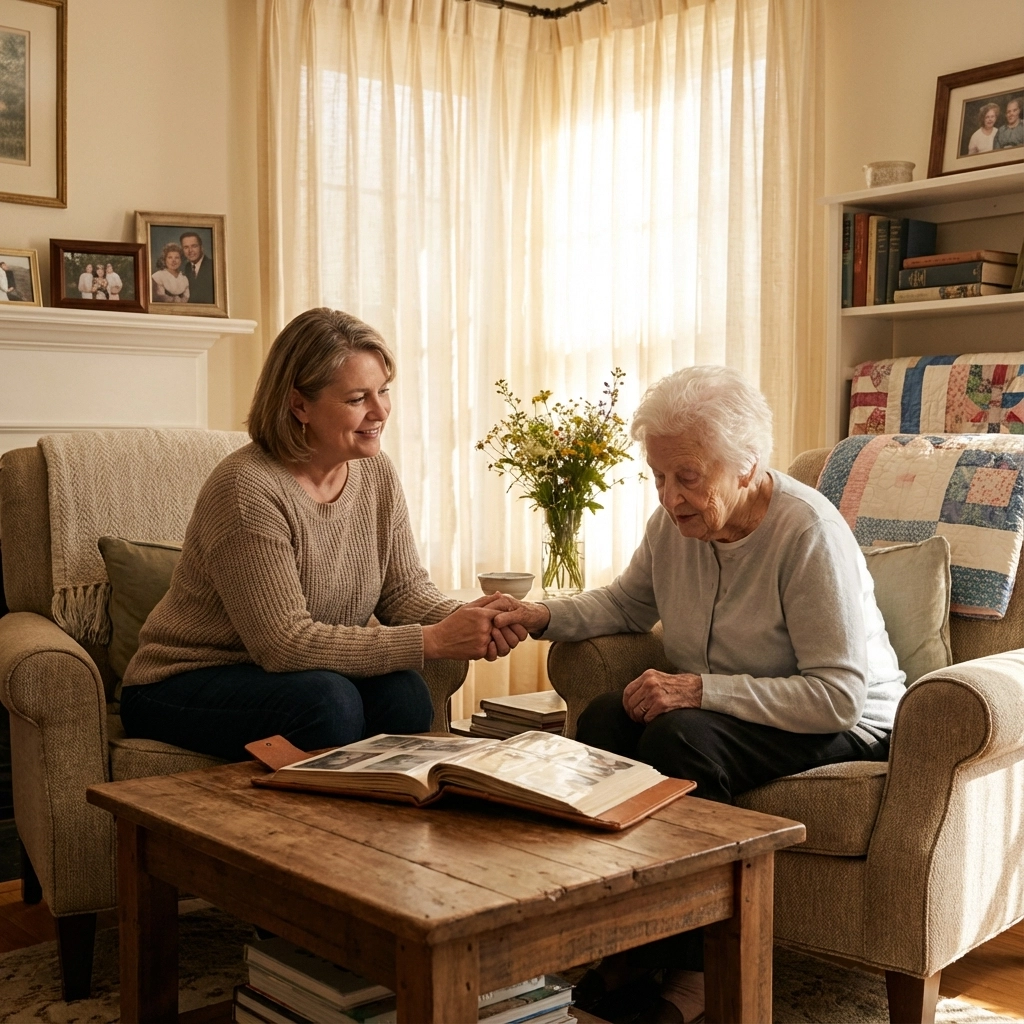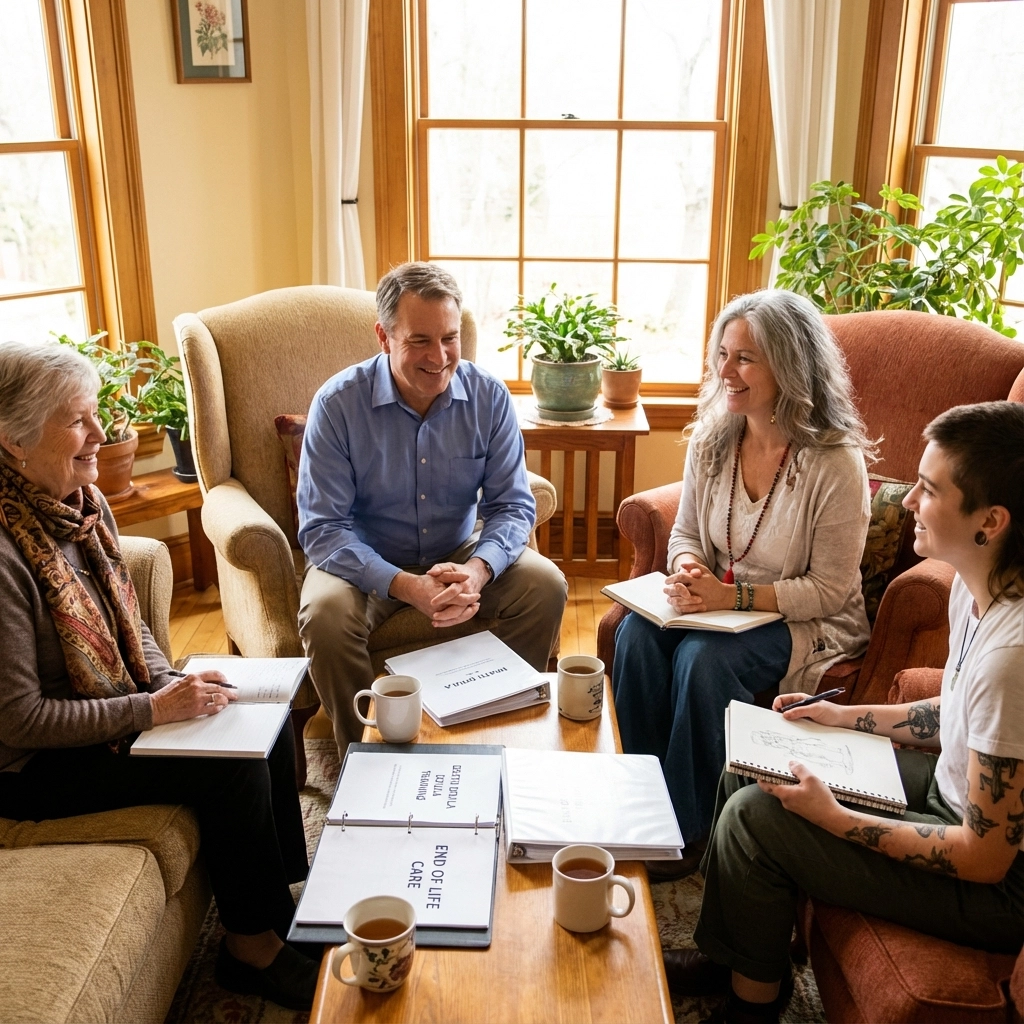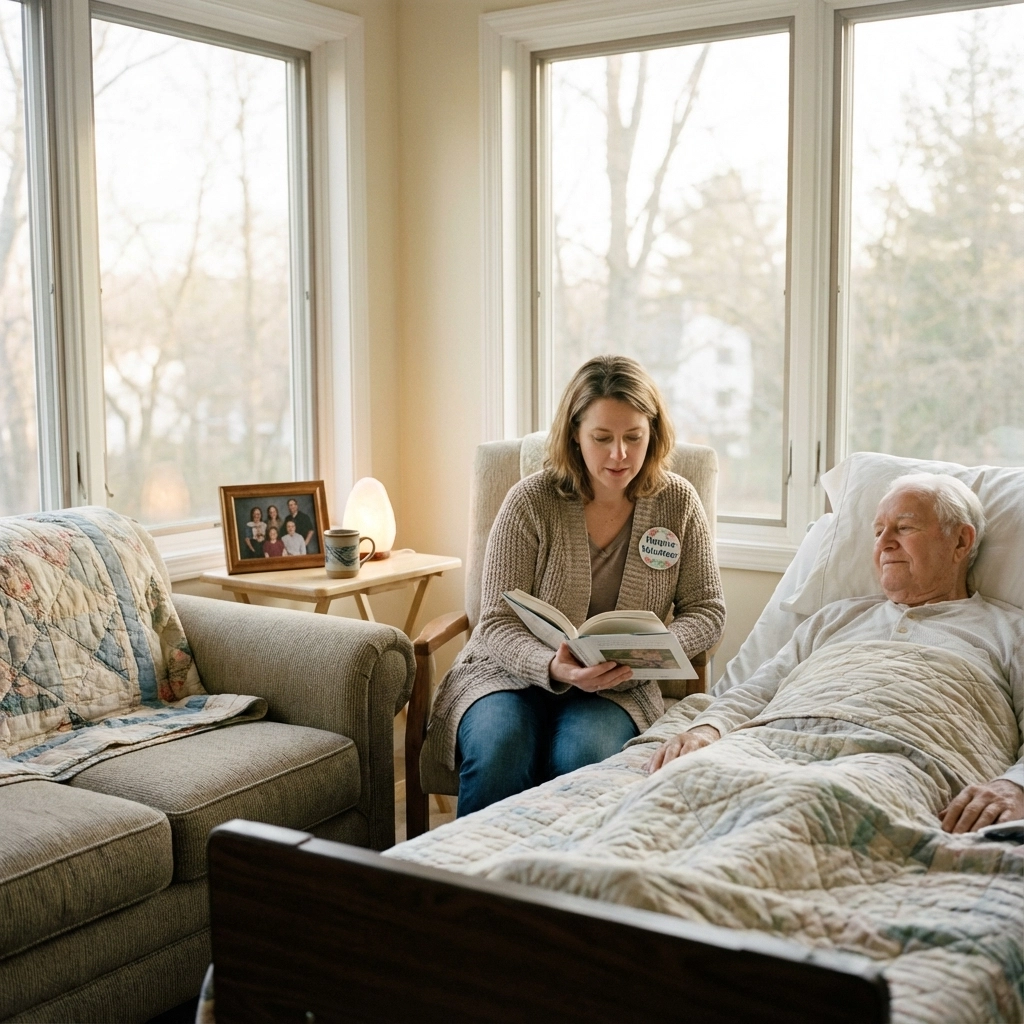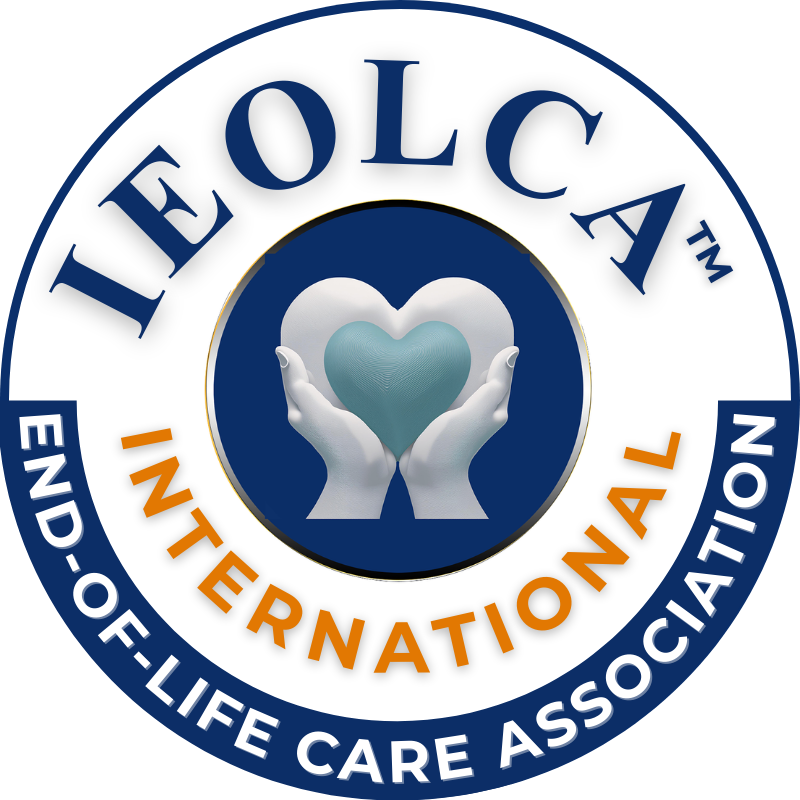
Key Takeaway: You do not need to be a nurse, have any medical training, or hold healthcare credentials to become a death doula. This role focuses on emotional, spiritual, and practical support—not clinical care.
Many people assume that end-of-life work requires medical training, but death doulas operate in a completely different sphere than healthcare professionals. Understanding this distinction is key to appreciating why nursing credentials aren't necessary—and why diverse backgrounds often make the strongest doulas.
What Death Doulas Actually Do (And Don't Do)
Death doulas provide emotional, spiritual, and practical support rather than medical care. Their role complements medical professionals but doesn't replace them. While nurses administer medication and perform clinical assessments, death doulas focus on:
- Creating peaceful environments for dying individuals
- Offering comfort through meaningful rituals and presence
- Supporting both the dying person and their loved ones emotionally
- Facilitating difficult conversations about death and dying
- Assisting with advance care planning and legacy projects
- Providing vigil planning and companionship during final days

This non-medical approach means death doulas never:
- Administer medications or perform medical procedures
- Make clinical decisions or diagnoses
- Replace the need for hospice care or medical oversight
- Provide hands-on medical care or wound management
The beauty of this role lies in addressing the human experience of dying—something that requires emotional intelligence, presence, and compassion rather than clinical skills.
Training Requirements: Open to Everyone
Because the death doula profession operates without formal regulation, there are no official licensure requirements or standardized certifications mandated by governing bodies. This creates an accessible entry point for people from various walks of life.
Most death doula training programs cover essential topics including:
- Grief support and understanding the dying process
- End-of-life planning and advance directives
- Cultural and spiritual considerations around death
- Ethical practices and professional boundaries
- Family dynamics and communication skills
- Self-care for doulas working in emotionally demanding situations
While training duration varies from program to program, most comprehensive courses range from 20 to 100+ hours. The focus remains on developing emotional and practical skills rather than medical knowledge.
Ready to Begin Your Journey?
Join students from 75+ countries in IEOLCA's comprehensive death doula certification—no medical background required.
Explore Our Training Program →Diverse Backgrounds That Thrive as Death Doulas
Some of the most effective death doulas come from completely non-medical backgrounds. The field attracts people whose life experiences have equipped them with the emotional tools necessary for this work:
- Personal Experience with Loss: Many doulas enter the field after supporting loved ones through terminal illness, bringing firsthand understanding of what families need during difficult times.
- Counseling and Therapy: Mental health professionals often transition naturally into death doula work, using their skills in active listening and emotional support.

- Spiritual and Religious Leadership: Clergy members, chaplains, and spiritual counselors bring experience holding space for people during life's most profound moments.
- Education and Caregiving: Teachers, social workers, and childcare providers possess the patience and communication skills essential for doula work.
- Corporate and Business: Professionals from unrelated fields often discover a calling to this work later in life, bringing valuable organizational and interpersonal skills.
- Creative and Artistic Fields: Artists, writers, and musicians contribute unique perspectives on meaning-making and legacy creation.
The common thread isn't professional background—it's the ability to remain present with suffering, offer non-judgmental support, and help others navigate one of life's most challenging transitions.
Getting Experience Before Formal Training
While formal training isn't required to begin exploring this path, gaining relevant experience can help you determine if death doula work is right for you:
- Hospice Volunteering: Many experts recommend volunteering with hospice organizations for at least six months. This provides direct exposure to end-of-life care and helps you understand the emotional demands of the work.
- Personal Support: Offering assistance to friends, family members, or community members facing serious illness gives invaluable insights into the practical and emotional needs of those approaching death.

- Death Education: Attending death cafes, grief support groups, or community conversations about death and dying expands your understanding of how people approach mortality.
- Self-Reflection: Examining your own relationship with death, loss, and grief is essential preparation for supporting others through these experiences.
This exploratory phase helps you assess whether you have the emotional resilience and genuine calling necessary for this challenging yet rewarding work.
The Value of an Unregulated Profession
The lack of formal regulation in death doula work offers both opportunities and responsibilities. Unlike licensed professions with standardized requirements, death doulas can:
- Define their practice based on personal strengths and interests
- Specialize in specific areas like pediatric care, cultural traditions, or home funeral advocacy
- Work independently or collaborate with existing healthcare organizations
- Adapt their approach to meet unique client needs and circumstances
This flexibility means some doulas focus primarily on emotional and spiritual support, while others take more practical approaches, assisting with logistics and family coordination. Some specialize in areas like Medical Assistance in Dying (MAiD) support or pet death doula services.
However, this freedom comes with the responsibility to seek quality training, establish clear boundaries, and maintain professional standards even without external oversight.
Building Credibility Without Medical Background
While medical training isn't necessary, death doulas without healthcare backgrounds can build credibility through:
- Quality Training Programs: Choosing comprehensive certification programs from reputable organizations demonstrates commitment to professional standards.
- Continuing Education: Attending workshops, conferences, and additional trainings shows dedication to ongoing learning and skill development.

Professional Associations
- Professional Associations: Joining death doula organizations provides networking opportunities and access to ethical guidelines and best practices.
- Client Testimonials: Building a portfolio of positive client experiences speaks to your effectiveness regardless of your background.
- Collaboration with Healthcare Providers: Working respectfully alongside medical professionals demonstrates understanding of appropriate boundaries and scope of practice.
Essential Qualities Over Credentials
The most crucial qualifications for death doula work center on personal attributes rather than professional credentials:
- Emotional Resilience: Ability to remain stable while supporting others through intense grief and fear
- Active Listening: Skill in hearing not just words but underlying emotions and needs
- Cultural Sensitivity: Respect for diverse beliefs about death, dying, and spiritual practices
- Boundary Setting: Understanding how to provide support without becoming emotionally overwhelmed
- Presence: Capacity to sit comfortably with silence, uncertainty, and strong emotions
These qualities can be developed and strengthened through training and experience, regardless of your starting point.
Getting Started as a Non-Medical Death Doula
If you're interested in becoming a death doula without medical background, consider these steps:
- Explore Your Motivations: Reflect honestly on why you're drawn to this work and whether you can handle its emotional demands
- Gain Preliminary Experience: Volunteer with hospice organizations or offer support to someone in your community
- Research Training Programs: Look for comprehensive programs that align with your learning style and schedule
- Consider Specialization: Think about whether you're drawn to particular populations or aspects of end-of-life care
- Plan for Business Development: Many doulas work independently, requiring basic business and marketing skills
Remember that becoming an effective death doula is about developing the right mindset, skills, and approach—not accumulating medical credentials.
The Unique Value of Non-Medical Perspectives
Death doulas without medical backgrounds often bring fresh perspectives to end-of-life care. They may be less likely to default to clinical approaches and more inclined to focus on the emotional and spiritual dimensions of dying. This can be particularly valuable for clients who feel overwhelmed by medical environments and crave more personal, holistic support.
Your unique life experiences, professional skills, and personal qualities all contribute to the distinctive support you can offer. Whether you're a former teacher who excels at explaining complex information, a business professional skilled in organization and planning, or an artist who helps people express their deepest feelings, your background becomes part of your strength as a death doula.
The death doula profession needs people from all walks of life because death touches everyone, regardless of background, education, or profession. Your non-medical perspective might be exactly what certain clients need to feel understood and supported during their final journey.
Start Your Death Doula Journey Today
No nursing degree. No medical background. Just compassion, commitment, and quality training.
Begin IEOLCA Certification 40-Hour Program • Lifetime Access • $249